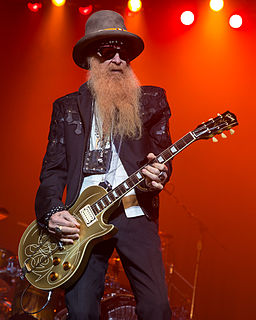A Quote by Philip Pullman
Gradually, at various points in our childhoods, we discover different forms of conviction. There's the rock-hard certainty of personal experience ("I put my finger in the fire and it hurt,"), which is probably the earliest kind we learn. Then there's the logically convincing, which we probably come to first through maths, in the context of Pythagoras's theorem or something similar, and which, if we first encounter it at exactly the right moment, bursts on our minds like sunrise with the whole universe playing a great chord of C Major.
Quote Topics
Certainty
Chord
Come
Context
Conviction
Convincing
Different
Discover
Earliest
Encounter
Exactly
Experience
Finger
Fire
First
Forms
Gradually
Great
Hard
Hurt
Kind
Learn
Like
Major
Maths
Minds
Moment
Our
Personal
Personal Experience
Playing
Points
Put
Right
Right Moment
Rock
Similar
Something
Sunrise
Then
Theorem
Through
Universe
Various
Which
Whole
Related Quotes
A text makes the word more specific. It really kind of defines it within the context in which it is being used. If it is just taken out of a context and presented as a sort of object, which is what - you know, which is a contemporary art idea, you know. It is like an old surrealist idea or an old cubist idea to take something out of context and put it in a completely different context. And it sort of gives it a different meaning and creates another world, another kind of world in which we enter.
Just by studying mathematics we can hope to make a guess at the kind of mathematics that will come into the physics of the future... If someone can hit on the right lines along which to make this development, it may lead to a future advance in which people will first discover the equations and then, after examining them, gradually learn how to apply them... My own belief is that this is a more likely line of progress than trying to guess at physical pictures.
That reality is 'independent' means that there is something in every experience that escapes our arbitrary control. If it be a sensible experience it coerces our attention; if a sequence, we cannot invert it; if we compare two terms we can come to only one result. There is a push, an urgency, within our very experience, against which we are on the whole powerless, and which drives us in a direction that is the destiny of our belief.
... Providence conducts us with so much kindness through the different periods of our life, that we scarcely feel the change; our days glide gently and imperceptibly along, like the motion of the hour-hand, which we cannot discover. ... we advance gradually; we are the same to-day as yesterday, and to-morrow as to-day: thus we go on, without perceiving it, which is a miracle of the Providence I adore.
This labour of the artist to discover a means of apprehending beneath matter and experience, beneath words, something different from their appearance, is of an exactly contrary nature to the operation in which pride, passion, intelligence and habit are constantly engaged within us when we spend our lives without self-communion, accumulating as though to hide our true impressions, the terminology for practical ends which we falsely call life.
We know next to nothing with any certainty about Pythagoras, except that he was not really called Pythagoras. The name by which he is known to us was probably a nickname bestowed by his followers. According to one source, it meant ‘He who spoke truth like an oracle’. Rather than entrust his mathematical and philosophical ideas to paper, Pythagoras is said to have expounded them before large crowds. The world’s most famous mathematician was also its first rhetorician.
The shortness of life, which we all discuss, but which is very clear to me at the moment, makes keeping and spreading a joyful peace more crucial than ever before. Let us keep our minds on what matters, which is our work, which is astonishment and gratitude. From this quiet magic comes a power for all other new years wishes to come true.
Philosophy [nature] is written in that great book which ever is before our eyes -- I mean the universe -- but we cannot understand it if we do not first learn the language and grasp the symbols in which it is written. The book is written in mathematical language, and the symbols are triangles, circles and other geometrical figures, without whose help it is impossible to comprehend a single word of it; without which one wanders in vain through a dark labyrinth.
Our virtues themselves are not free and floating qualities over which we retain a permanent control and power of disposal; they come to be so closely linked in our minds with the actions in conjunction with which we have made it our duty to exercise them that if we come to engage in an activity of a different kind, it catches us off guard and without the slightest awareness that it might involve the application of those same virtues.
One springs to mind: one of our very first gigs in a small East Texas town was not well promoted. At least, that was our conclusion. After the band loaded in and the curtain opened, we realized there was exactly one paying customer in the audience. We kind of made the best of it playing through the first set, took a break and bought him a Coke and then went on to perform for the remainder of the night. It wasn't exactly a catastrophe but it certainly stands as legendary.
... poetry is not a luxury. It is a vital necessity of our existence. It forms the quality of the light within which we predicate our hopes and dreams toward survival and change, first made into language, then into idea, then into more tangible action. Poetry is the way we help give name to the nameless so it can be thought. The farthest horizons of our hopes and fears are cobbled by our poems, carved from the rock experiences of our daily lives.




































